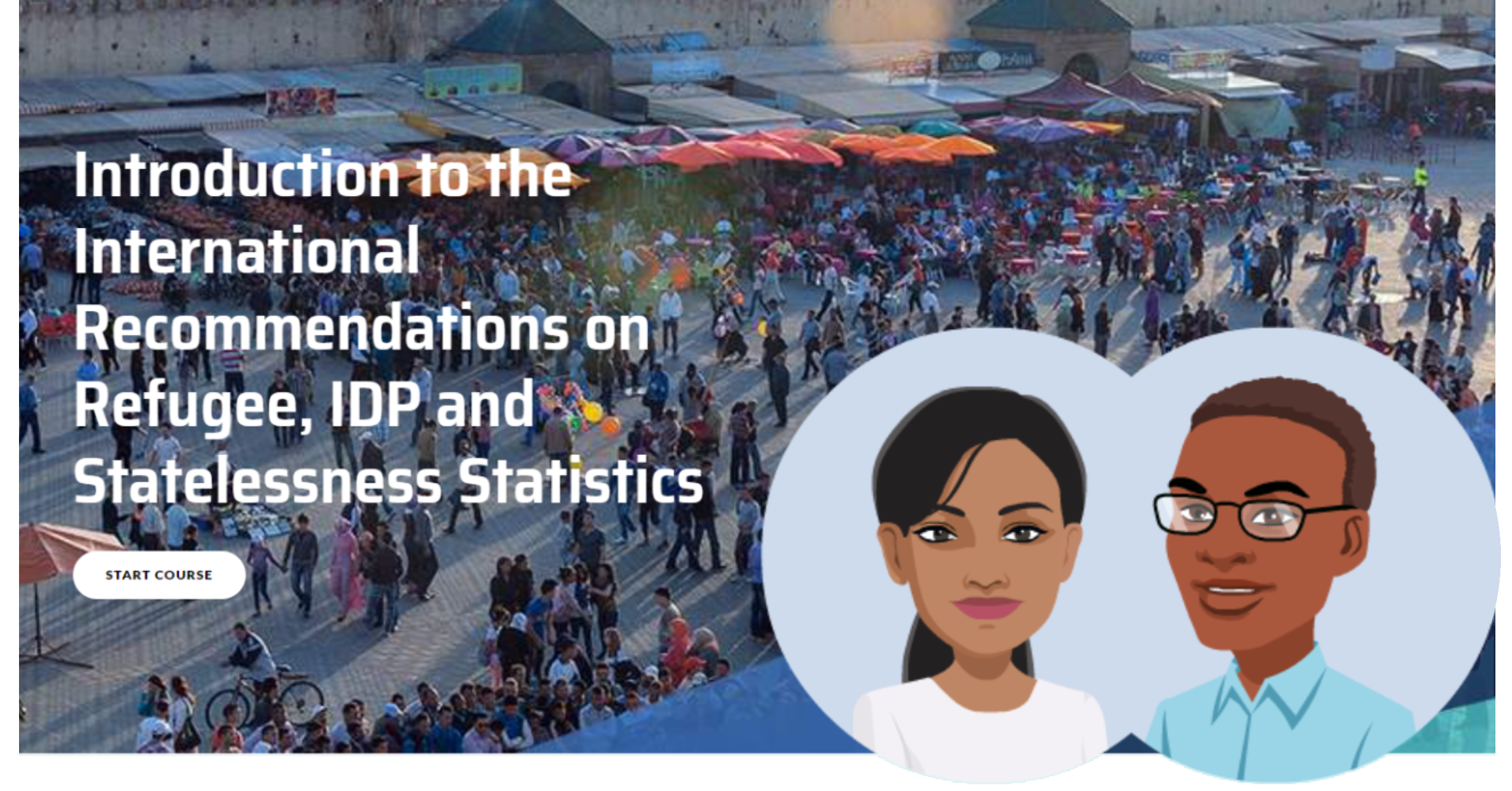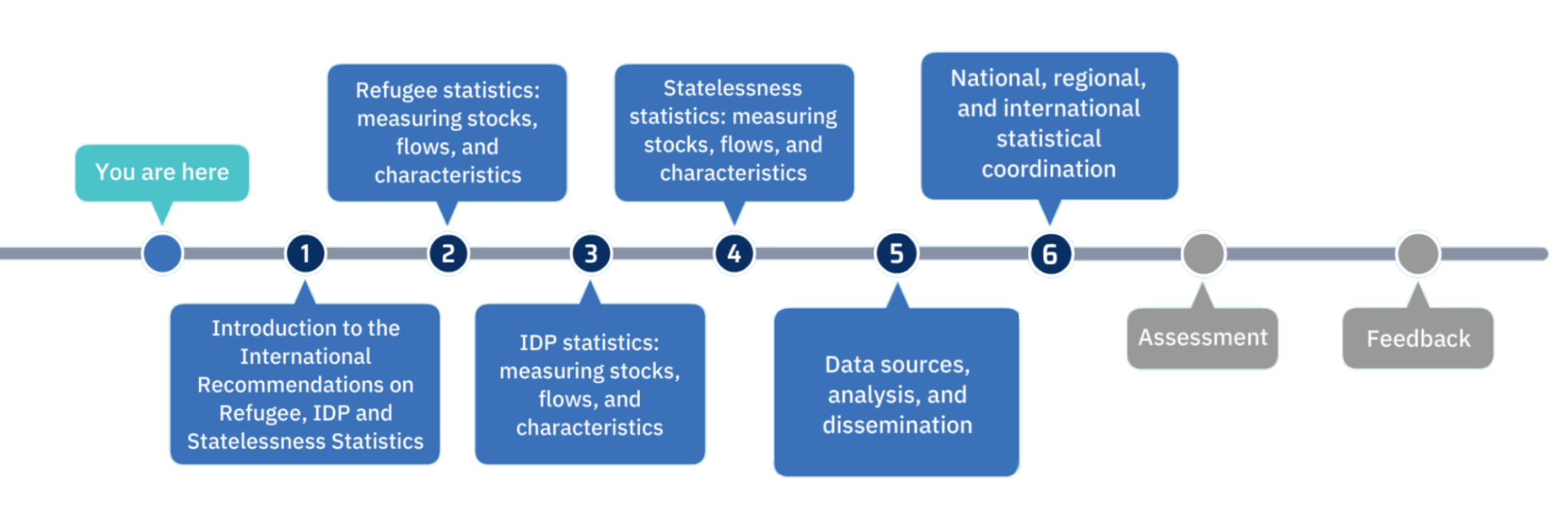E-learning Course
©Mihai Eremia/FrozenMonkeys Media
The e-learning course “Introduction to the International Recommendations on Refugee, IDP and Statelessness Statistics” was developed by EGRISS in collaboration with the United Nations Statistical Institute for Asia and the Pacific (UN-SIAP) as part of the Technical Subgroup on Regional Engagement and Capacity Development. Initially launched in April 2023, it had a successful update, re-launch and delivery from April to May 2024, garnering over 490 enrollees in total.
A self-paced version of the course is available for interested participants – you are welcome to access it here.
This free, self-paced version allows students to engage with the same high-quality material at their own pace and, like the facilitated course, introduces an additional module on statelessness statistics. It also includes updates to existing content to incorporate the latest methodological advancements on refugee, IDP, and statelessness statistics.
The course introduces the content of the IRRS, IRIS and IROSS to practitioners working within national statistical systems and increase their capacities to compile statistics on refugees, IDPs and stateless persons. Upon successful completion of the final assessment and evaluation of the content, participants will be eligible to receive a certificate.

The objectives of the e-learning course are to:
- Discuss the role of EGRISS and its outputs in providing the statistical framework for the compilation of official statistics in response to the various data needs.
- Apply concepts, definitions, methodology, and main data sources for refugee, IDP, and statelessness statistics according to internationally endorsed recommendations.
- Illustrate implementation issues, including data sharing, data confidentiality, data quality, and metadata.
- Appraise the importance of coordination of data on refugees, IDPs and statelessness to facilitate policy development.
At a Glance
Self-paced course with interactive lessons
6 pedagogical modules with integrated knowledge checks/assessments
60 – 90 minutes of seat time per module
Certificate of completion available for participants succeeding in final exam
The course contains six modules and a final assessment:

